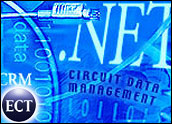
As Microsoft once again renews its efforts to target small to mid-sized companies, many in the software industry express skepticism, while others welcome the competition.
Just how committed is Microsoft to the small to mid-market software segment? As many critics will point out, this is not the first re-dedication by Microsoft. But Microsoft claims in press statements that it is seeing increased momentum in the small to mid-market software segment.
A spokesperson for Microsoft told CRM Buyer that Microsoft was “unable to participate in this particular interview.” But she sent links to press releases that talked about the company’s efforts to make software more attractive to small to medium-sized businesses.
Looking Out for the Little Guy
While Microsoft was not willing to talk about its efforts, many others in the industry had plenty to say about the software giant’s efforts to focus on small to mid-sized companies. Rob Enderle, principal analyst at Enderle Group in San Jose, Calif., for one, said this area of the market is seen as a “huge untapped opportunity.” But he said Microsoft might face obstacles.
“Large firms have had a great deal of difficulty relating to small companies and the cost of each sale, as a percentage of that sale, remains daunting,” Enderle said. He said that the small to mid-sized markets are still often best served by value-added retailers, which are basically small companies who put software systems together for other small to mid-size firms.
There are more than 240,000 small businesses in the U.S. and more than 400,000 small businesses worldwide, estimates Gary Stowell, vice president of business development and product management at St. Bernard Software in San Diego, a provider of security software that helps small and medium-sized business.
Stowell defines small businesses as companies with 50 to 1000 employees and with sales between US$5 million and $1 billion. “This market is substantial and cannot be ignored by software vendors,” Stowell said. “The small-business market is under served because it has traditionally been hard to reach. Sales costs can be high and average sale price is low, which squeezes margins. Only the most efficient software vendors survive in the small-business market.”
Customer Service
It is only natural that many vendors will put increased attention on the small-business market, said Michael Helfrich, senior vice president of product strategy and marketing at Jabber Inc., in Denver. “The total addressable market is very attractive,” he said. But he said that not every company has the support infrastructure necessary to support a massive customer base.
Jabber provides commercial-grade instant-messaging architecture for small to mid-sized companies. Helfrich said Microsoft’s renewed focus on this segment has helped to open the market to the idea of using instant messaging beyond basic text. “We see Microsoft’s entry into this market and marketing muscle they bring as a net positive for what we are doing,” he said.
“Microsoft cuts a wide path in every market they play in. But the market is broad enough that there is room for multiple players. We will compete on simplicity and the ability to integrate our software with any other instant-messaging system on the market today and tomorrow.”
Mike Gillis, president of Iteration2, said Microsoft is well placed to compete in the small to mid-sized market. The Irvine, Calif.-company designs software-systems using Microsoft. Gillis said that while companies that traditionally focus on enterprise resource planning (ERP) systems are continuing with efforts to address the needs of mid-sized companies. “It is very difficult for large software companies like Oracle or SAP to move down-stream and be successful,” he said.
“We believe that Microsoft will commoditize business-application software and turn it into a true platform,” Gillis said. “We created our company on the belief that only Microsoft can bring together the business application with the technology stack (the platform and tool-set) to change things and make business software easier, cheaper, and more fun to use.”
A Little Talk, a Lot of Action
Jim Schaper, chief executive officer at INFOR — an Atlanta-based provider of enterprise software for customers in the manufacturing and distribution industries — said Microsoft would draw attention to the small to mid-size market segment. But he said it is still unclear if Microsoft will be successful. He said that companies like Microsoft, SAP and Oracle talk about the small-business market, but end up with software applications that target large corporate customers.
“At INFOR, we focus exclusively on serving the needs of manufacturers and distributors. We have deep market knowledge of the essential issues these companies face. We do not build operating systems or presentation software and therefore do not have distractions,” he said.
As growth has dried up in the enterprise segment, almost all software companies have launched a small-business initiative, according to Zach Nelson, chief executive officer of NetSuite in San Mateo, Calif. “However, taking products designed for large companies and then retrofitting them to work for smaller businesses is a recipe for failure,” Nelson said.
“It would be like a bus manufacturer changing the color of the bus from yellow to black, and then calling it a car. Those companies that will be successful are designing solutions specifically for the needs of smaller companies, and then delivering the software as a service.”
NetSuite provides companies with a single, integrated, Web-based system. It includes customer relationship management (CRM), order management and fulfillment, inventory management, finance management, Web-site management and employment productivity management.
Nelson said Microsoft’s effort to attract small to mid-sized firms, however, would bring credibility to the idea of an integrated suite. “We are excited by what Microsoft is promoting, because it will create an enormous amount of demand for a product like NetSuite,” he said.
Garnering Attention
Others also welcome the competition. Doug Meyer, president of the small business division at Sage Software, said he expects that Microsoft’s renewed focus on small to mid-size businesses will bring greater attention to the overall small-business software market. But like many others in the industry, he is not convinced that Microsoft’s effort will be successful.
“Microsoft is a company with diverse offerings — from operating systems to gaming consoles — for its variety of customers. However, this lack of focus on a particular market will make it difficult for the company to truly understand the needs of small businesses,” he said.
This story was originally published on Sept. 29, 2005, and is brought to you today as part of our Best of ECT News series.

















































